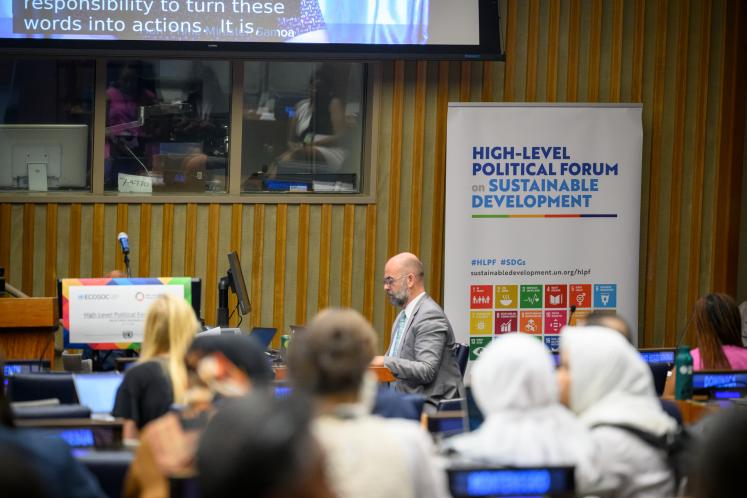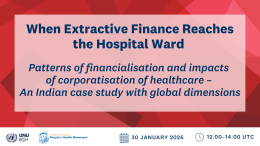Global economic progress is often measured by a single, familiar indicator: gross domestic product (GDP). Long considered the benchmark of development, GDP remains central to decisions about policy, development finance and eligibility for official assistance. Yet, as the world faces escalating challenges, from climate change and pandemics to widening inequality, this traditional metric is increasingly seen as inadequate for capturing the full picture of human and planetary well-being.
This paper, part of UNU-CPR's Reimagining Global Economic Governance series to mark the Fourth International Conference on Financing for Development (FfD4), explores international efforts to move beyond GDP as the dominant measure of progress. While GDP and gross national income (GNI) continue to shape development assessments, they overlook critical dimensions such as health, education, unpaid labour and environmental sustainability. Although global GDP has doubled since 1970, resource extraction has tripled, raising concern about the true costs of economic growth. In response, the international community has called for alternative approaches, including the creation of new metrics and the development of a multidimensional vulnerability index (MVI).
The paper traces the evolution of these proposals, with a focus on growing momentum since 2020. It examines how Member States have engaged with the Beyond GDP agenda and the MVI, particularly in the context of major UN processes such as the Summit of the Future. While the Beyond GDP initiative remains under discussion, the MVI was formally adopted by the General Assembly in August 2024. Unlike frameworks developed by Bretton Woods institutions, both proposals have emerged from UN negotiations, highlighting the need for broader institutional alignment. As these efforts advance, their success will depend on coordinated implementation and the active participation of global financial institutions.
Read the paper here.




